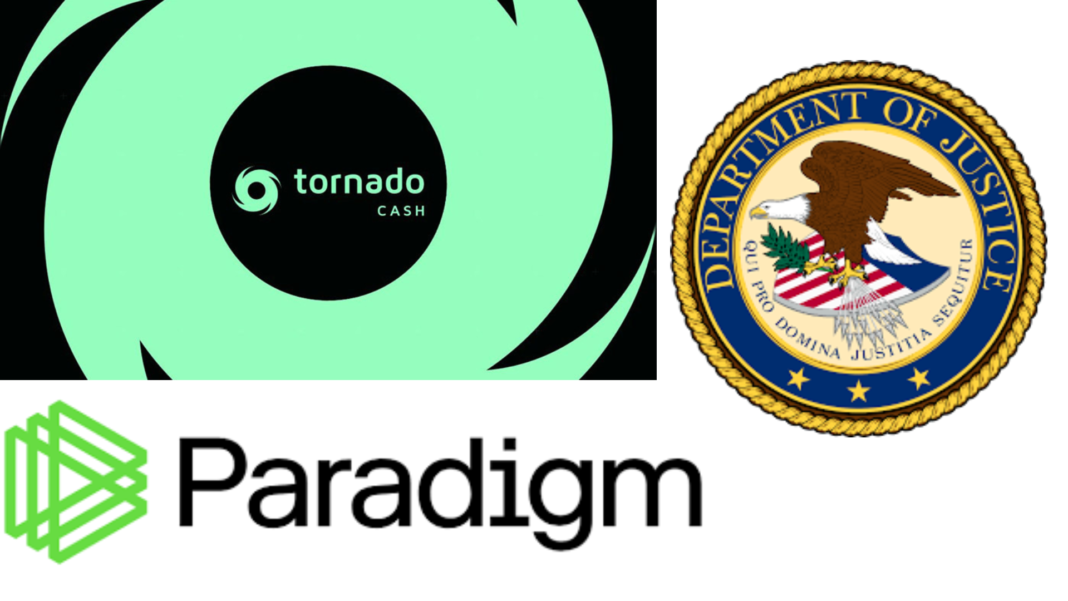In a significant development for the cryptocurrency industry, venture capital firm Paradigm has stepped forward with a substantial $1.25 million donation to support the legal defense of Roman Storm, one of Tornado Cash’s developers.
The intervention comes at a crucial moment as Storm faces serious charges from the U.S. Department of Justice.
Paradigm’s co-founder Matt Huang has framed this support as more than just aid for an individual case, characterizing it as a defense of fundamental principles in software development.
The firm’s concern centers on the precedent this case could set, potentially creating what Huang describes as a “chilling effect” on innovation across the technology sector.
The support represents a broader mobilization within the cryptocurrency community to protect developers from being held criminally liable for the independent actions of users who utilize their open-source code.
Legal Challenges and Developer Accountability
The case against Tornado Cash’s developers represents a complex intersection of privacy rights, software development, and criminal law.
Roman Storm and co-founder Roman Semenov face charges related to money laundering, with prosecutors alleging their platform facilitated the laundering of over $1 billion in illicit funds.
The DOJ’s case particularly emphasizes the platform’s use by the North Korean Lazarus group, highlighting how criminal organizations have leveraged the privacy features of Tornado Cash.
The severity of the charges is reflected in the potential 45-year prison sentences both developers face if convicted.
Storm has publicly defended his position, characterizing the prosecution as a “terrifying criminalization of privacy” and maintaining that his role was limited to creating open-source code for non-custodial private transactions, not facilitating criminal activity.
The case has become a focal point in the ongoing debate about developer liability and the boundaries between privacy protection and regulatory compliance.
Also Read: FTX Files 23 Fresh Lawsuits Against Binance, SkyBridge, Crypto.com To Recover Funds
Recent Legal Developments and Industry Impact
The legal landscape surrounding Tornado Cash has been marked by both setbacks and victories.
A significant development came with a U.S. court’s decision to reverse sanctions on the platform itself, ruling that Tornado Cash should not be classified as “property” subject to sanctions.
However, this victory was tempered by a New York court’s recent denial of Storm’s motion to reconsider the charges against him.
These contrasting decisions highlight the complex legal environment surrounding privacy-focused cryptocurrency technologies.
The outcome of this case could have far-reaching implications for how software developers are treated under U.S. law, potentially affecting innovation and development practices across the entire blockchain industry.
Broader Industry Legal Challenges
The Tornado Cash case exists within a broader context of increasing legal challenges in the cryptocurrency industry.
Notable concurrent cases include WeMade’s $11 million lawsuit over unpaid WEMIX token bonuses, where 27 current and former employees are seeking compensation for their contributions to the blockchain project.
Additionally, Celsius Network is pursuing an appeal to overturn a ruling that denied its $444 million claim in the FTX lawsuit, highlighting the complex financial and legal entanglements in the crypto space.
In Utah, a federal judge’s decision to uphold the SEC’s lawsuit against Kristoffer Krohn over an alleged $18 million crypto mining fraud demonstrates the intensifying regulatory scrutiny of the industry.
These cases collectively illustrate the growing pains of an industry grappling with legal accountability, regulatory compliance, and the protection of individual rights while maintaining innovation and development freedom.
Also Read: Caitlyn Jenner Faces Class-Action Lawsuit Over Alleged Unregistered ‘JENNER’ Memecoin Sales


